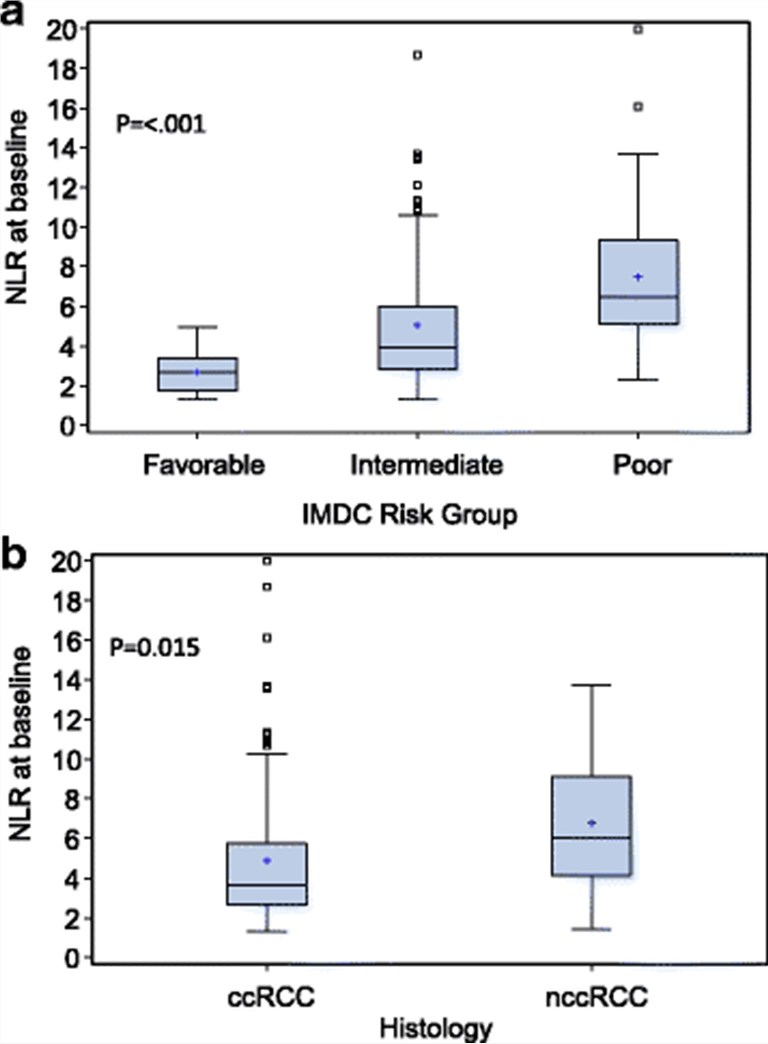All products and services are For Research Use Only and CANNOT be used in the treatment or diagnosis of disease.
Peripheral blood neutrophil-to-lymphocyte ratio (NLR) is widely reported to be associated with inflammatory response and has been used as a guide to prognosis in many diseases, including a variety of cancer. Thus, NLR may serve as a useful Prognostic Biomarker for immune monitoring. NLR can easily be calculated and immediately available based on a complete blood count. Creative Biolabs has a highly experienced team of scientists, regulatory and quality staff that have a long history of successful implementation of many NLR analysis projects. We continue to serve our global clients with professionalism and expertise in NLR analysis for immune monitoring.
Neutrophils, the most common form of circulating leukocyte, are the first responsive cell type recruited in the host's innate inflammatory immune response. Neutrophils are known to infiltrate many types of cancers, including prostate, non-small cell lung cancer, breast, locoregional and metastatic renal cell carcinoma. Clinical studies indicate that NLR can be a universally available prognostic marker, with the majority concluding that a high baseline NLR is correlated with a worse prognosis. Studies have found an increased NLR to be an independent risk factor for severity in patients with COVID-19 infections. This is congruent with mounting evidence on the importance of neutrophil response in severe COVID-19. Furthermore, NLR correlated with IL-6 levels and may represent a proxy to monitor response to IL-6 blockade. Although the reason is not very clear, this report suggests that persistently elevated NLR is associated with unfavorable outcomes. Therefore, an elevated NLR is considered as one potential marker.
 Fig.1 NLR at start of anti-PD-1/PD-L1 therapy by (a) IMDC risk groups and (b) histology. (Lalani, 2018)
Fig.1 NLR at start of anti-PD-1/PD-L1 therapy by (a) IMDC risk groups and (b) histology. (Lalani, 2018)
NLR can be easily determined from the full blood count, it potentially provides a simple and inexpensive test cancer prognosis. Equipped with a team of seasoned scientists with facilities and processes designed specifically to meet very challenging requirements in biomarker development for immune monitoring, Creative Biolab offers fast, reliable support to evaluate the association between NLR and tumor response during immunotherapy. With proven experience in NLR analysis, Creative Biolabs is an ideal company to entrust with your business.
The usefulness of NLR as a prognostic and predictive marker is helpful for the assessment of the disease progression and response. With an experienced team of experts in NLR analysis, seasoned scientists at Creative Biolabs will work with you to assess the clinical value of this ratio and its association with tumor response in patients. For more information, please feel free to contact us and further discuss with our scientists.
Reference
For any technical issues or product/service related questions, please leave your information below. Our team will contact you soon.
 NEWSLETTER
NEWSLETTER
The latest newsletter to introduce the latest breaking information, our site updates, field and other scientific news, important events, and insights from industry leaders
LEARN MORE NEWSLETTER NEW SOLUTION
NEW SOLUTION
CellRapeutics™ In Vivo Cell Engineering: One-stop in vivo T/B/NK cell and macrophage engineering services covering vectors construction to function verification.
LEARN MORE SOLUTION NOVEL TECHNOLOGY
NOVEL TECHNOLOGY
Silence™ CAR-T Cell: A novel platform to enhance CAR-T cell immunotherapy by combining RNAi technology to suppress genes that may impede CAR functionality.
LEARN MORE NOVEL TECHNOLOGY NEW SOLUTION
NEW SOLUTION
Canine CAR-T Therapy Development: From early target discovery, CAR design and construction, cell culture, and transfection, to in vitro and in vivo function validation.
LEARN MORE SOLUTION